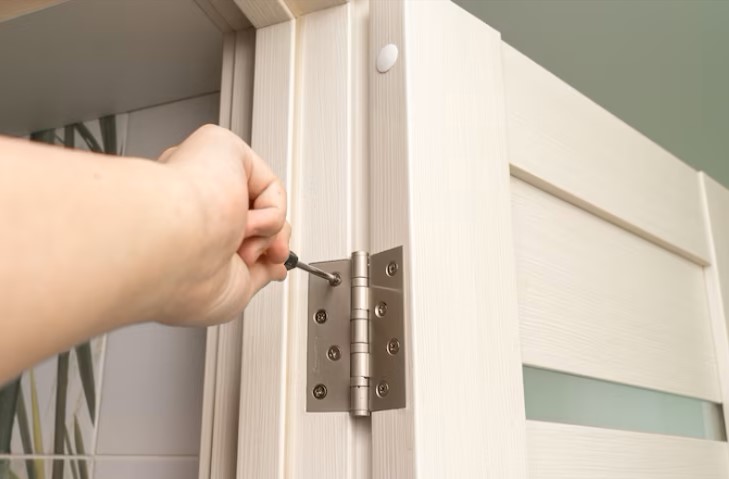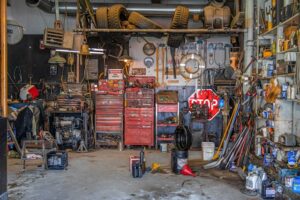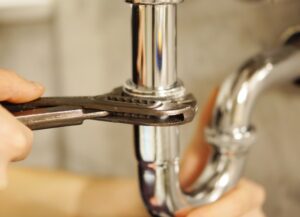
There’s a certain satisfaction in the smooth, silent swing of a well-hung door. It’s an underappreciated component of home and commercial space functionality – until something goes wrong. Door hinges, although small, play a crucial role in your door’s performance. Understanding common door hinge problems and their solutions can save time, money, and prevent replacement.
Here, we delve into five typical issues with door hinges and provide handy tips on how to resolve them. Plus, we’ll introduce how the type of hinge, such as the distinction between ball bearing door hinges vs regular, can influence your door’s functionality.
Squeaky Hinges
A high-pitched squeak each time you swing your door open or closed can be enough to drive anyone to distraction. This common issue often results from friction between the hinge pin and the hinge, usually because of a lack of lubrication.
Apply a lubricant like WD-40 or petroleum jelly to the hinge pins. Lift the pins slightly and lubricate them before setting them back in place. Work the door back and forth to ensure the lubricant is evenly distributed.
Door Sticking or Binding
Over time, doors may begin to stick, making them challenging to open or close. This issue often occurs because of the natural settling of the house, humidity changes affecting the door frame, or build-up of paint.
Identify where the door is sticking and sand or plane the door in that area to reduce its size, providing free movement. Repainting the sanded area will help seal the wood and protect it from moisture.
Loose Hinges
Loose hinges can cause a door to hang crooked or not close properly – this issue is typically due to the screws in the hinges becoming loose in their holes.
Tighten the screws if they are loose. For stripped screw holes, remove the screw, fill the hole with a small wooden dowel and wood glue, and once dry, re-drill and re-screw the hinges into place.
Door Won’t Latch
If a door doesn’t latch, it won’t stay closed, usually indicating that the door is not properly aligned with the latch plate on the frame.
Check the alignment of the latch plate. If misaligned, repositioning the plate and possibly chiselling a new recess for it can solve the problem. If the door has sagged, tightening or shimming the hinges can help.
Worn Hinges
Over years of use, hinges can wear out, making doors difficult to operate and resulting in metal scraping sounds. It’s essential to understand the type of hinge installed, as some, like ball bearing door hinges, are more durable and provide smoother operation compared to regular hinges.
If your hinges are worn beyond simple repair, replacing them altogether is the best strategy. It’s recommended to upgrade to more robust options, like ball bearing hinges, particularly for heavier doors to ensure longevity and smooth motion.
In Conclusion, Maintaining the Seamless Functionality of Doors is Often a Matter of Keeping an Eye on the Little Details
Hinges, as small as they are, hold everything together – ensuring they are well-lubricated, tight, and in good condition can prevent many door-related headaches. Furthermore, understanding the differences in hinge types, such as ball bearing door hinges vs regular, can make a significant difference in the performance and lifespan of your doors. With these tips at your fingertips, you can swing any door with confidence and the satisfying swoosh of silence.




